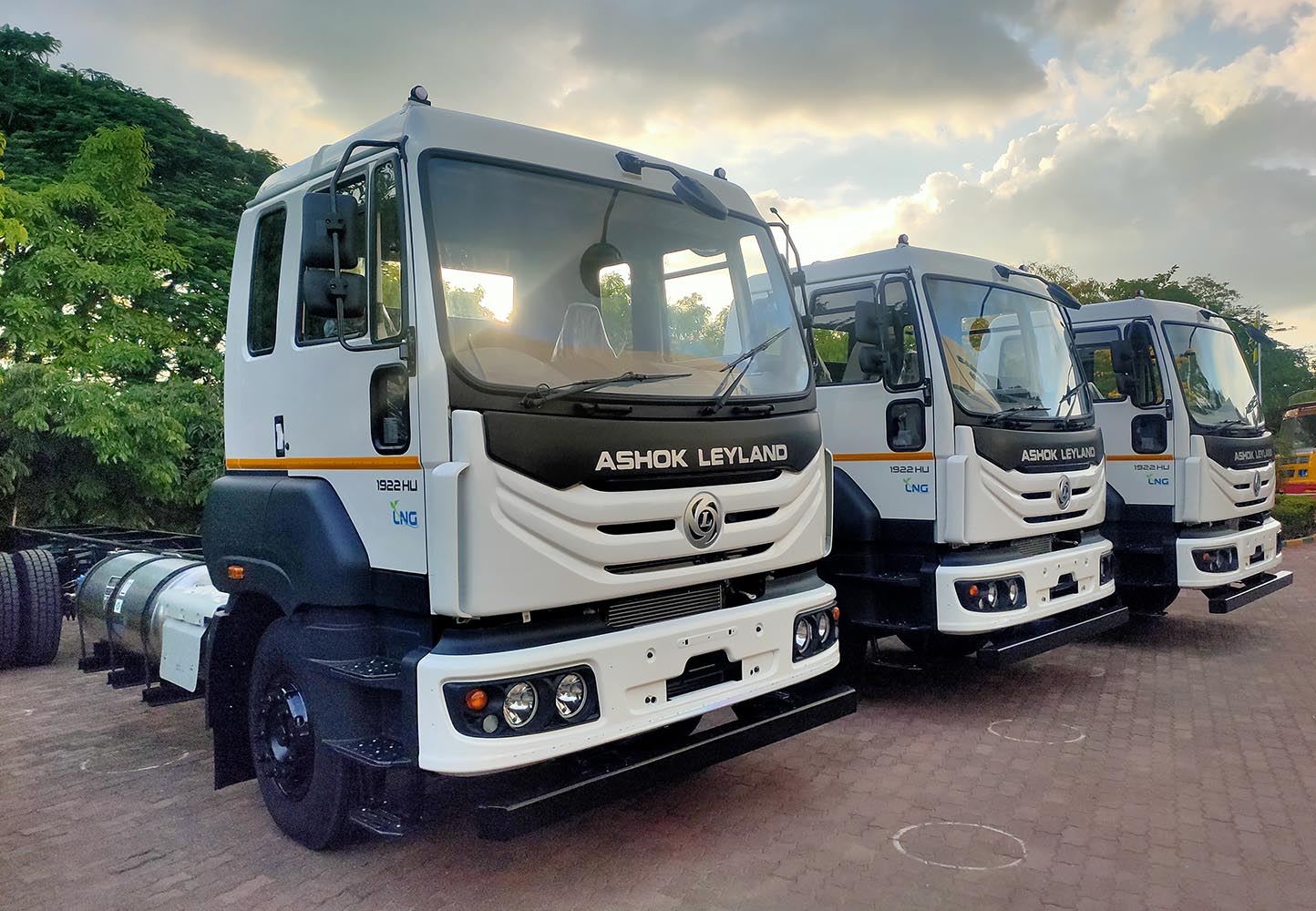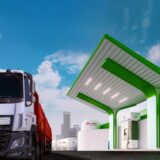
Ashok Leyland launches India’s pioneer LNG truck
Ashok Leyland, a leading commercial vehicle manufacturer and part of the Hinduja Group, marked a significant milestone in the Indian transportation sector by initiating the delivery of the country’s first Liquified Natural Gas (LNG) powered haulage truck, the AVTR 1922, to Mahanagar Gas Limited in Hosur, India.
This event underscores the company’s drive toward fostering a greener and more sustainable future for transportation in India.
The introduction of the AVTR 1922 positions Ashok Leyland as the first Indian original equipment manufacturer (OEM) to develop an in-house LNG engine that aligns with the stringent BSVI Stage II emission norms.
The Bharat Stage VI (BS VI) emission norms in India are stringent regulations aimed at reducing air pollution from vehicles. The BS VI emission standards were implemented nationwide in April 2020 for all categories of vehicles.
BS VI norms significantly reduce the permissible emission limits for pollutants such as nitrogen oxides (NOx), particulate matter, sulfur oxides (SOx), as well as carbon monoxide, hydrocarbons, and methane. For diesel engines, the NOx emissions are to be reduced by 70%, and particulate emissions by 80%.
The difference between Stage I and Stage II in the context of Bharat Stage VI (BS VI) emission norms typically refers to the progressive stages of implementation and the stringency of the emission standards. Here’s a general overview:
Stage I sets the foundational emission standards that vehicles must comply with. In the context of BS VI, Stage I would involve the basic requirements that significantly reduce emissions compared to the previous Bharat Stage (BS) standards. This includes lower limits for pollutants like NOx, CO, HC, PM, and stricter control on fuel quality.
Stage II involves more stringent emission standards and introduces additional requirements. In the case of BS VI, Stage II includes enhanced requirements for On-Board Diagnostics (OBD), more rigorous durability requirements, and tighter limits on certain pollutants.
The AVTR 1922 is engineered on the versatile AVTR platform, ensuring compatibility and ease of service with Ashok Leyland’s existing diesel truck range. This strategic move by Ashok Leyland not only broadens its product offerings but also propels it into the alternate fuel domain, thereby elevating the standards of the commercial vehicle industry in India.
Key features of the AVTR 1922 LNG truck
- Equipped with a reliable 6-cylinder H-series engine.
- Constructed on the AVTR platform, India’s first fully modular truck platform.
- Tailored performance for Indian operating conditions.
- A factory-built cabin that adheres to all safety regulations.
- A robust full metal front fascia that enhances safety and simplifies repairs.














